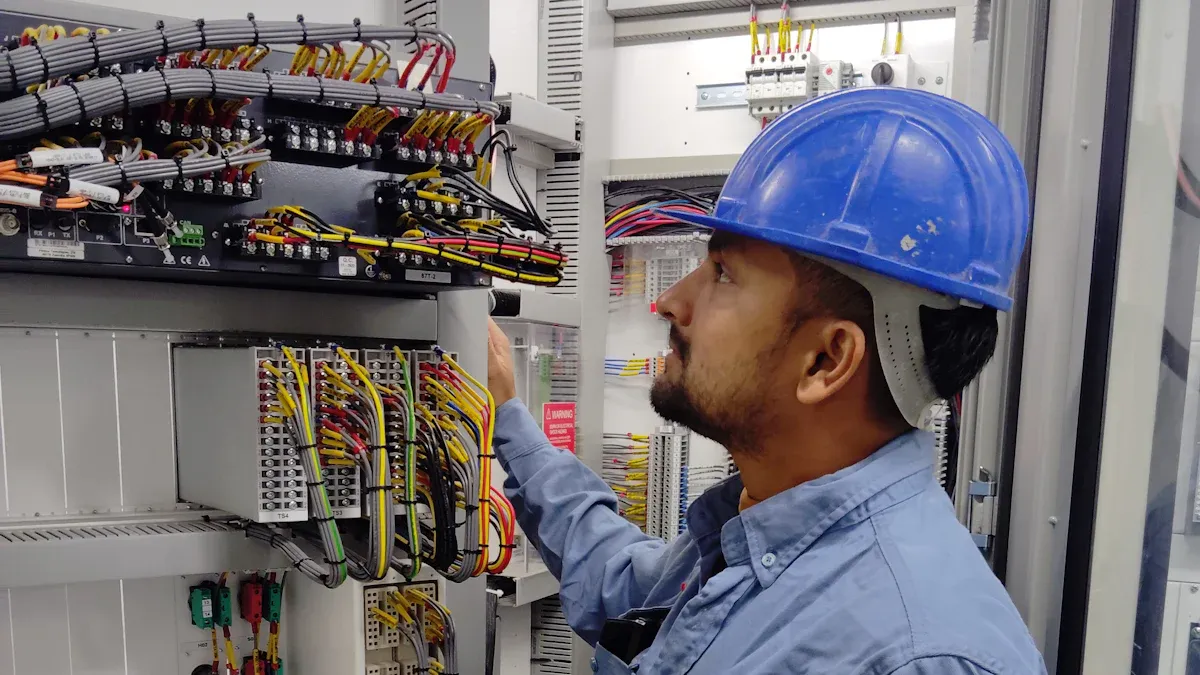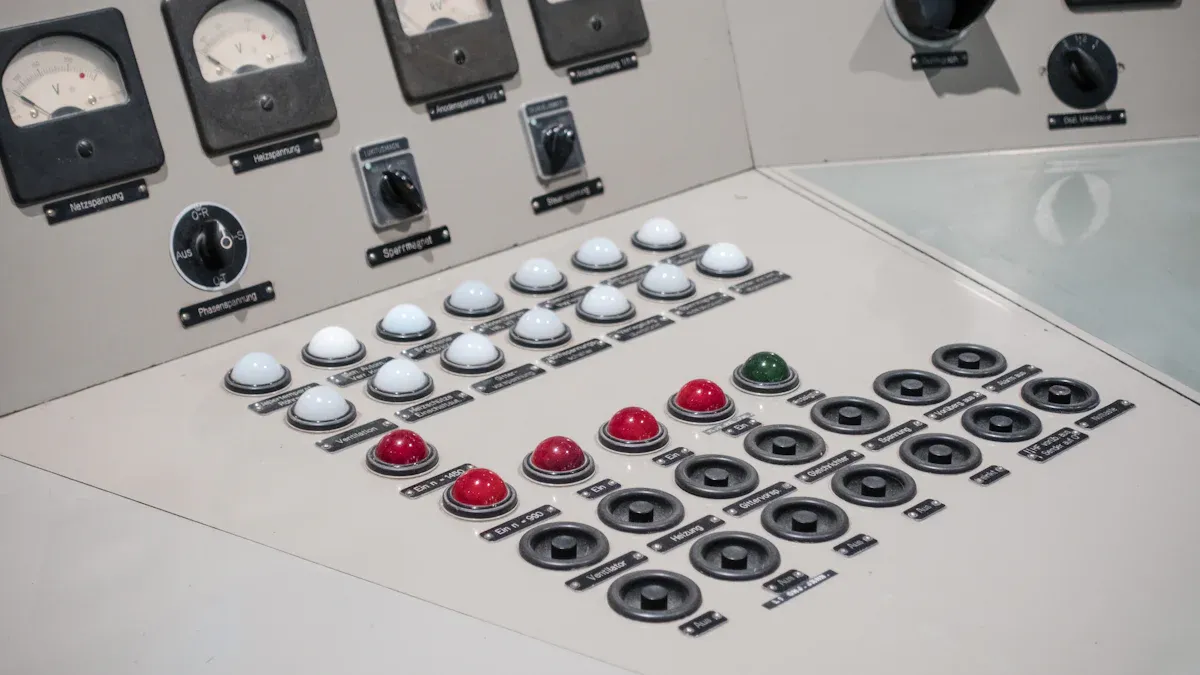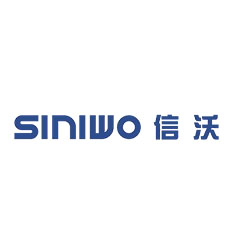
Waterproof Industrial Keypad solutions now deliver unmatched durability in the toughest settings. Many industries rely on advanced keypads to withstand moisture, dust, and chemicals. A Zinc Alloy Illuminated Keypad resists corrosion and offers clear visibility in low-light conditions. These innovations help users maintain productivity even when the environment becomes extreme.
Key Takeaways
- Waterproof industrial keypads use advanced sealing and strong materials like stainless steel and zinc alloy to resist water, dust, chemicals, and extreme temperatures, ensuring long-lasting performance in tough environments.
- Modern keypads offer smart features such as touchless input and IoT connectivity, which improve safety, hygiene, and allow remote monitoring to reduce downtime and boost efficiency.
- Customizable designs and strict industry certifications make these keypads user-friendly and reliable, supporting safer and more efficient operations across industries like oil and gas, food processing, and outdoor installations.
Enhanced Durability in Waterproof Industrial Keypad Design

Next-Generation Waterproofing Techniques
Manufacturers now use advanced sealing methods to protect keypads from water and dust. They often apply silicone gaskets and double-layer membranes. These barriers stop moisture from reaching the internal circuits. Some companies use ultrasonic welding to bond keypad layers. This process creates a seamless surface that blocks liquid and dirt.
Note: Next-generation waterproofing does not only keep water out. It also prevents chemicals and oils from damaging the keypad.
Engineers test each Waterproof Industrial Keypad in simulated harsh environments. They spray water, dust, and chemicals to check for leaks. These tests ensure the keypads work in real-world conditions. Many models now meet IP67 or higher ratings. This means the keypad can survive full submersion in water for a limited time.
Advanced Materials for Extreme Conditions
Material choice plays a big role in durability. Designers select metals like stainless steel and zinc alloy for the outer shell. These metals resist rust and corrosion. Some keypads use polycarbonate or other tough plastics. These plastics can handle impacts and temperature changes.
A comparison of common materials:
| Material | Strength | Corrosion Resistance | Temperature Tolerance |
|---|---|---|---|
| Stainless Steel | High | Excellent | Wide Range |
| Zinc Alloy | Medium | Very Good | Moderate |
| Polycarbonate | Good | Good | Wide Range |
Many Waterproof Industrial Keypad models also feature UV-resistant coatings. These coatings stop sunlight from breaking down the material. In cold climates, some keypads use heaters to prevent freezing. In hot areas, special vents allow heat to escape.
- Stainless steel keypads work well in food processing plants.
- Zinc alloy models suit outdoor kiosks and fuel stations.
- Polycarbonate keypads fit mobile equipment and vehicles.
These material choices help the keypads last longer and perform better in harsh environments.
Smart Features in Waterproof Industrial Keypad Technology
Touchless and Hybrid Input Technologies
Modern industries demand safer and more efficient ways to interact with machines. Touchless input technology has become a leading trend in Waterproof Industrial Keypad design. These keypads use sensors that detect hand movements or gestures. Operators can enter commands without making physical contact. This feature reduces the spread of germs and keeps surfaces cleaner.
Hybrid input systems combine traditional buttons with touchless controls. Workers can choose the best method for each task. For example, a gloved worker in a food processing plant may use gesture controls, while another may press physical keys for precise input. This flexibility improves workflow and safety.
Key benefits of touchless and hybrid input technologies include:
- Lower risk of contamination in sensitive environments
- Easier operation for users wearing gloves or protective gear
- Faster cleaning and maintenance routines
Tip: Touchless keypads work well in places where hygiene is critical, such as hospitals and food factories.
IoT Connectivity and Remote Monitoring
The rise of the Industrial Internet of Things (IIoT) has changed how companies use Waterproof Industrial Keypad solutions. Many new keypads now feature built-in wireless modules. These modules connect the keypad to a central system or cloud platform. Managers can monitor device status, usage patterns, and error reports in real time.
A typical IoT-enabled keypad offers:
| Feature | Benefit |
|---|---|
| Remote diagnostics | Faster troubleshooting |
| Usage analytics | Improved process efficiency |
| Firmware updates | Enhanced security and features |
| Predictive maintenance | Reduced downtime |
Remote monitoring helps companies spot problems before they cause failures. For example, if a keypad in a remote oil field starts to malfunction, the system can alert technicians right away. This quick response saves time and money.
IoT connectivity also supports better data collection. Companies can track how often each Waterproof Industrial Keypad gets used. They can adjust maintenance schedules based on real data, not just guesswork.
Note: IoT-enabled keypads help industries move toward smarter, more connected operations.
User Experience and Customization in Waterproof Industrial Keypad Solutions
Ergonomic and Adaptive Designs
Engineers design modern keypads to fit the way people work. They shape buttons for easy pressing and arrange layouts for quick access. Many Waterproof Industrial Keypad models now feature larger keys and backlighting. These features help users see and operate the keypad in dark or wet conditions. Some designs include raised edges or textured surfaces. These details guide fingers to the right spot, even when users wear gloves.
Tip: Ergonomic keypads reduce hand fatigue and improve accuracy during long shifts.
Manufacturers also test keypads with real workers. They gather feedback and adjust the design. This process ensures the keypad feels comfortable and works well in different environments.
Customizable Interfaces for Industry Needs
Industries often need special functions on their keypads. Manufacturers now offer custom layouts and programmable keys. Companies can choose symbols, colors, or even Braille for better accessibility. Some Waterproof Industrial Keypad solutions allow users to change the interface through software. This flexibility helps teams adapt to new tasks or safety rules.
A few common customization options include:
- Swappable keycaps for different languages
- Color-coded zones for quick navigation
- Custom legends for unique commands
Note: Custom interfaces help workers complete tasks faster and with fewer errors.
These options make the keypad a better fit for each job site. They also support safer and more efficient operations.
Compliance, Safety, and Sustainability in Waterproof Industrial Keypad Manufacturing
Meeting New Industry Standards and Certifications
Manufacturers now focus on strict standards to ensure product safety and reliability. They test each Waterproof Industrial Keypad to meet global certifications like IP67, NEMA, and RoHS. These certifications show that the keypads resist water, dust, and chemicals. Many companies also follow ISO 9001 for quality management. This standard helps them track every step of production.
A table of common certifications:
| Certification | Focus Area | Benefit |
|---|---|---|
| IP67 | Water/Dust Proof | High protection |
| NEMA 4X | Corrosion/Weather | Outdoor use |
| RoHS | Hazardous Substances | Safer materials |
| ISO 9001 | Quality Management | Consistent products |
Note: Meeting these standards helps industries trust the performance of each keypad in harsh environments.
Eco-Friendly Manufacturing and Recyclability
Sustainability has become a top priority in keypad production. Many factories now use recycled metals and plastics. They design parts for easy disassembly and recycling at the end of the product’s life. Some companies use water-based paints and lead-free solder to reduce pollution.
Key eco-friendly practices include:
- Using renewable energy in factories
- Reducing waste during production
- Choosing recyclable packaging
These steps help lower the environmental impact of each Waterproof Industrial Keypad. Companies that adopt green practices also meet growing customer demand for sustainable products.
Real-World Applications of Waterproof Industrial Keypad Technology

Oil & Gas Industry
Engineers in the oil and gas sector often work in environments filled with moisture, dust, and chemicals. They need equipment that can handle these tough conditions. A Waterproof Industrial Keypad provides reliable control for drilling rigs, monitoring stations, and pipeline systems. Workers can operate these keypads with gloves, even when surfaces are wet or oily. The rugged design resists corrosion from saltwater and harsh chemicals. Many sites use keypads with backlit keys for visibility during night shifts or in low-light areas.
Tip: Regular cleaning does not damage these keypads, so teams can maintain hygiene and safety standards.
Food Processing Environments
Food processing plants require strict hygiene. Operators must wash equipment often to prevent contamination. Waterproof keypads allow frequent cleaning with high-pressure water or sanitizing chemicals. The smooth surfaces and sealed edges stop bacteria from hiding in crevices. Workers can use the keypads while wearing gloves or protective gear. Customizable layouts help teams follow safety protocols and manage production lines efficiently.
- Easy-to-clean surfaces support food safety.
- Durable materials withstand daily washdowns.
Outdoor and Remote Installations
Outdoor kiosks, fuel stations, and remote monitoring units face rain, snow, and extreme temperatures. A Waterproof Industrial Keypad ensures reliable operation in these settings. The keypads resist UV rays, freezing, and heat. Solar-powered installations often use these keypads because they require little maintenance. Emergency call boxes and weather stations also benefit from the robust design.
Note: Reliable keypads help keep outdoor systems running, even in storms or remote locations.
The latest Waterproof Industrial Keypad technology sets new standards for reliability and efficiency. Industries now benefit from safer, smarter, and more sustainable operations. These keypads adapt to changing demands.
Companies that invest in advanced keypads secure long-term success in harsh environments.
FAQ
What makes a keypad truly waterproof?
A keypad becomes waterproof through sealed membranes, gaskets, and advanced materials. These features block water, dust, and chemicals from reaching internal electronics.
How do users clean waterproof industrial keypads?
Users can clean these keypads with water, disinfectants, or mild detergents. The sealed design allows frequent cleaning without damaging the device.
Can waterproof keypads operate in freezing or hot environments?
Yes. Manufacturers design these keypads with materials that resist extreme temperatures. Some models include heaters or vents for added protection.
Tip: Always check the product’s temperature rating before installation.


